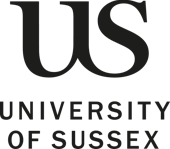Professor Michael Farthing was appointed Vice-Chancellor of the University of Sussex in autumn 2007 and since that time he has been the driving force behind strategic institutional development at Sussex during a period of profound change in the Higher Education sector.
University of Sussex
Alongside his senior roles in Higher Education management, Professor Farthing, has a distinguished career in medicine, both as a physician and as an academic, spanning more than 30 years.
In 1997 he was founding Chair of the Committee for Publication Ethics (COPE) and in 2006 was founding Vice-Chair of the UK panel for Research Integrity in Health and Biomedical Science, now the UK Research Integrity Office.
In 2009 he was appointed as the new chair of the Health and Social Care Policy Committee of UUK and became a member of the Board of Universities UK (UUK - the representative body of executive heads of UK universities)..
In 2010, he was also appointed non-executive director of the Brighton and Sussex University Hospitals NHS Trust.
Since January 2013, he has served as one of six medical professionals on the reformed General Medical Council (GMC).
He was President of the British Society of Gastroenterology 2007-08, having previously served as Honorary Secretary (1990-94,) and was awarded the British Society of Gastroenterology Research Medal in 1987. He was editor of the Society's journal, Gut 1996-2002.
Professor Farthing has contributed to the management of a number of professional organisations including the Association of Physicians of Great Britain and Ireland, the European Association of Gastroenterology and Endoscopy (President 1998-2001) and the United European Gastroenterology Federation (member of Council, Chair of the Scientific Committee). He is a member of the Editorial Boards of a number of national and international Gastroenterology journals.
He has also served on the General Medical Council's Education Committee and Undergraduate Board since 2001 and chaired the group that reviewed the GMC's curriculum guidance document, 'Tomorrow's Doctors'.
Education and earlier academic career
Professor Farthing graduated from University College, London and the University College Hospital Medical School in 1972. Following a Registrar post in Addenbrooke's Hospital, Cambridge, he was appointed Wellcome Research Fellow, Honorary Lecturer in Gastroenterology at St Bartholomew's Hospital, London.
Between 1980 and 1983, he was a Wellcome Tropical Lecturer and held overseas posts as visiting lecturer and Assistant Professor in India, Boston and Costa Rica. In 1983 he returned to the UK as a Wellcome Senior Lecturer and Honorary Consultant Physician in the Department of Gastroenterology at St Bartholomew's Hospital and in 1990 was appointed to a personal professorship and Head of Department.
Prior to joining the University of Sussex, Professor Farthing was Principal of St George's, University of London, which specialises in medicine and health sciences. He was also Pro-Vice-Chancellor for Medicine for the University of London.
Professor Farthing's previous appointments in Higher Education over the past decade have included Executive Dean of Medicine, University of Glasgow (2000 - 2003), and Dean of Clinical Medicine at Queen Mary, University of London (1995 - 1997).
In these roles, Professor Farthing served on a variety of other national and international bodies. He has been a non-executive director of several Boards including the East London and City Health Authority (1998), the Greater Glasgow NHS Board (2001) and in 2003 he was appointed to the South West London Strategic Health Authority.
Research interests
His major research interests include the pathogenesis of intestinal infection and inflammation, the mechanisms and control of intestinal secretion and the relationship between brain and gut function. He has contributed to other research areas including Helicobacter, GI cancer and IBS. The neuro-immune control of epithelial cell fluid and ion transport continues to be an active area of investigation, especially where it relates to enterotoxin-mediated secretory diarrhoea and the discovery of new therapeutic targets for its control.
Experience
-
–presentVice Chancellor, University of Sussex
- Article Feed
- Joined


